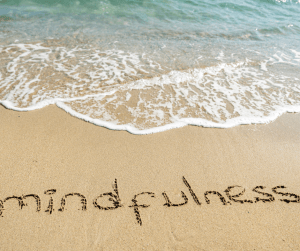The Ripple Effect: Understanding how stress takes a toll on your mental & physical wellbeing
In the fast-paced rhythm of modern life, stress has become an unwelcome companion for many.
The demands of work, family, and personal responsibilities create a constant hum of pressure. As a result, this affects not only our mental state but also leaves an indelible mark on our physical wellbeing.
Let’s delve into the intricate web of stress, exploring how its impact ripples through the mind and body.
The Stressors We Face

From tight deadlines at work to personal relationship challenges, stressors come in various forms.
Stress is a natural response to perceived threats or challenges, triggering the body’s fight-or-flight response.
While this response is crucial for survival in acute situations, chronic stress – the kind many of us experience daily – takes a toll on both mental and physical health.
Mental Wellbeing: The First Ripple

Stress has a profound effect on mental wellbeing. It can manifest as anxiety, irritability, and difficulty concentrating.
The constant buzz of stress hormones, such as cortisol, can lead to an overactive mind, making it challenging to relax and unwind.
Prolonged exposure to stressors contributes to the development or exacerbation of mental health conditions like depression and anxiety disorders.
The mind becomes a battleground, with stress influencing our thoughts, emotions, and overall cognitive function.
Sleep disturbances, a common byproduct of chronic stress, further contribute to mental fatigue, creating a vicious cycle that hampers our ability to cope.
The Physical Toll: A Deeper Impact

As stress affects mental health, its ripple extends deeper, impacting the physical body.
One noticeable area is the cardiovascular system. Chronic stress contributes to high blood pressure, increasing the risk of heart disease and other cardiovascular issues.
The constant state of alertness and elevated heart rate puts a strain on the heart, leading to long-term consequences for physical health.
Moreover, stress can wreak havoc on the immune system. The same cortisol that influences our mental state also suppresses immune function, making us more susceptible to infections and illnesses.
It’s a double-edged sword: stress weakens our defences, leaving us vulnerable to health challenges just when our bodies need resilience the most.
Hormonal Havoc: The Link Between Mind and Body

The endocrine system, responsible for producing hormones that regulate various bodily functions, becomes a focal point in understanding the connection between mental and physical wellbeing.
Stress activates the release of hormones such as adrenaline and cortisol, which play a pivotal role in the body’s fight-or-flight response.
While this response is crucial in emergencies, constant activation due to chronic stress disrupts the delicate balance of hormones.
This imbalance can lead to issues like disrupted menstrual cycles, fertility challenges, and even exacerbate conditions like diabetes.
Breaking the Cycle: Strategies for Resilience

Understanding the interconnected nature of stress on mental and physical wellbeing is the first step toward breaking the cycle.
Employing effective stress management strategies becomes imperative for maintaining a healthy balance.
Mindfulness and Relaxation Techniques: Practices such as meditation and deep breathing exercises can help calm the mind, reducing the impact of stress on mental wellbeing.
Regular Exercise: Physical activity not only benefits the body but also releases endorphins, the body’s natural stress relievers. Regular exercise is a powerful tool for promoting both mental and physical health.
Social Support: Building strong social connections provides a vital support system. Talking about stressors with friends, family, or a mental health professional can alleviate the mental burden and contribute to overall wellbeing.
Healthy Lifestyle Choices: A balanced diet, sufficient sleep, and limiting stimulants like caffeine and alcohol contribute to both mental and physical resilience.
How Essential Thyme can help with mental and physical wellbeing

Stress, with its dual impact on mental and physical wellbeing, requires a holistic approach for effective management.
By understanding the ripple effect it creates, we can implement strategies that not only alleviate the symptoms but also promote long-term resilience.
Remember, breaking the cycle starts with acknowledging the interconnected nature of our mental and physical wellbeing and taking intentional steps towards a more balanced and fulfilling life.
Here at Essential Thyme, we offer a choice of online Mindfulness training courses.
Visit our website to learn more.
Keep an eye out on our socials – Facebook, Instagram, and LinkedIn
